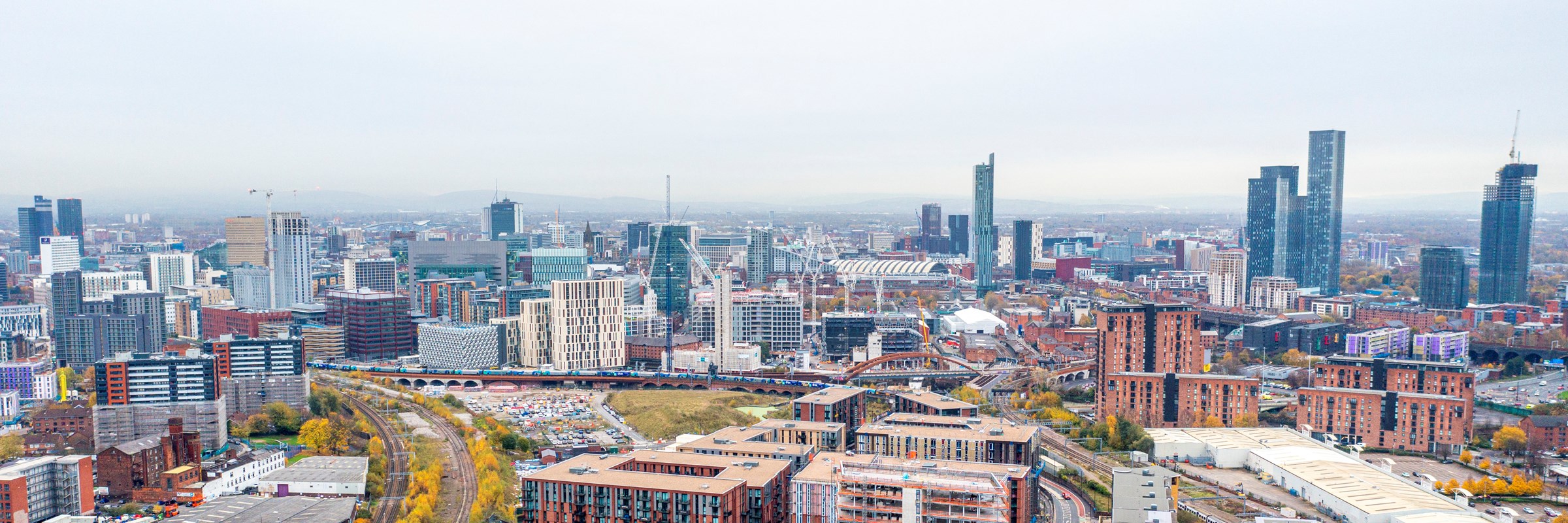
A plan for a waste-free Greater Manchester
A new plan which sets out how Greater Manchester businesses and residents can reduce waste and create a more circular economy, is to be rolled out.
Greater Manchester Combined Authority’s (GMCA) Sustainable Consumption Plan (SCP), approved on 24 June 2022, supports the region’s five-year Environment Plan which was launched at the GM Green Summit in 2019.
The SCP highlights what is needed to move Greater Manchester’s businesses to a model that is more reliant on reusing and recycling materials and how to empower residents to make more sustainable lifestyle choices, helping to achieve the region’s ambitions of becoming carbon neutral by 2038.
It sets out four priorities to do this: Moving to a Circular Economy, Managing Waste Sustainably, Reducing Food Waste and Moving to Sustainable Lifestyles.
To create a circular economy in Greater Manchester, the SCP Plan highlights a need for industries to produce more sustainable products that are in use longer and move us away from a ‘throw away’ society, to instead to be centred around reusing and recycling, using raw materials as a last resort.
To support this, GMCA will work with partners to drive innovation in the city region, exploring ways to help businesses with this change in culture. This will involve creating a `business to business’ platform which will bring organisations in the city region together to find new ways of their industry working so they can create this type of circular economy that eliminates waste. This will start with the textiles industry.
GMCA’s waste contractor, SUEZ UK, is already leading the way by repairing and upcycling household items which would have been thrown away at the household waste recycling centres. At more than 5000m2, the Renew Hub in Greater Manchester is the UK’s largest, newest and most unique reuse operation. Hundreds of tonnes of pre-loved items which would have otherwise gone to waste are brought to the Hub for repair and resale in three renew shops, with all of the money going back to the local community.
To manage waste sustainability, the SCP Plan will look to learn more about where waste is coming from throughout the city region, both from households and businesses, and use the data to help change business models and behaviours.
Over 70 per cent of food waste is being created by households. With the current cost-of-living crisis facing the country, it is increasingly important that no food is wasted. The SCP Plan sets out proposals to cut down the amount of food wasted, alongside schemes to increase home growing and composting and redistributing unwanted or unused food to those facing financial difficulties. This systematic approach will make Greater Manchester’s food consumption more affordable, sustainable and will help to ensure more people have access to healthy food.
Every person in Greater Manchester has a role to play by living more sustainably. This involves reducing waste and our carbon footprint and choosing products that are environmentally and socially responsible. As well as the development of the GM Green Cities website, communications and marketing campaigns will continue to be delivered so we can work together to educate, raise awareness and encourage everyone to make more sustainable life choices.
Cllr Neil Emmott, GMCA Lead for Green City Region and Waste & Recycling, said: “As our society faces more economic pressures, we need to help people and businesses reduce avoidable waste, which can also reduce bills. We need to keep products and materials in use for longer to reduce pressure on the environment. Globally, we currently extract three times the number of natural resources than we did over 30 years ago. This figure is also expected to more than double by 2060 if we don’t make significant changes now.
“We need to see waste as a design flaw, not part of the process. This means changing how products are made and used in our city region. The public sector can support this by changing the way we buy goods and services, but we need other consumers and producers to play their part. This plan gives us a framework to work together on making system-wide changes, beginning with a focus on food, plastics and textiles.
“A huge part of this is supporting our region’s businesses to operate in a way that causes the least amount of waste without impacting their success; moving away from the make, use, dispose model and instead adopting an approach of replacing the use of scarce resources with fully renewable, recyclable or biodegradable materials. This needs to involve businesses working together to find the best ways of doing this within their industry.
“We all have to be better joined-up in how we tackle problems around waste. In particular, with the huge pressures people currently face just to feed their families, it’s just not acceptable that we also have a problem with food wastage. We need to – and will – explore new ways of ensuring food that would be going to waste is going to those who really need it. This will support our commitment to creating a greener future, but a fairer one too.
“We all have a part to play in making the changes we need so, as a city region, we are more resilient and are living more sustainably and we’ll continue to work hard to create more awareness on how people and businesses can reduce their negative impact on the planet.”
The Greater Manchester SCP Plan will now provide the framework for the region’s key activities to become more sustainable over the coming years. It will be delivered by a Challenge Group of public, private, third sector and academic partners, formed under the GM Mission Based Approach, reporting in to GMCA via the Green City Region Partnership.
An annual implementation plan will be developed and agreed with the Challenge Group to set key targets and priorities for each year.
Article Published: 24/06/2022 11:40 AM